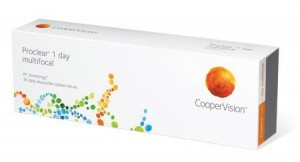Need a fresh new look for summer? Come on in to check out our huge selection of sunglasses!

BATTLING BLUE LIGHT
Why worry about blue light?
• 62 percent of surveyed respondents spend five or more hours on their digital devices every day
• 14 percent spend at least 10 hours a day on their devices
• Chronic exposure to blue-light-producing LED lights creates retinal injury
• Reading on blue-lite-reading devices before bed:
* prolongs the time it takes to fall asleep
* delays the circadian clock
* reduces the amount and delays the timing of REM sleep
* reduces alertness the following morning
• An association has been found between dysfunctional sleep-wake cycles and other health problems, such as diabetes and some forms of cancer
The doctors at Primary Eyecare Center recommend selective filtering of harmful Blue-Violet light for all of our users of digital devices. Ask your doctor or optician for more information.
PEC HOLIDAY PARTY
Many patients hate the dreaded “air puff” test during their annual eye exam. A quick and painless technology is now available in our office to test for glaucoma. The Icare tonometer is based on a new technology that does not require an air puff or eyedrops. The measurement is barely noticeable and our patients much prefer it to the old methods.
What is glaucoma and why is it important to test for it?
Glaucoma refers to a group of related eye disorders that all cause damage to the optic nerve that connects the eye to the brain. Glaucoma usually has few or no initial symptoms. In most cases, glaucoma is associated with higher-than-normal pressure inside the eye. But it also can occur when intraocular pressure (IOP) is normal. If untreated or uncontrolled, glaucoma first causes peripheral vision loss and can eventually lead to blindness.
According to the American Academy of Ophthalmology, the most common type of glaucoma — called primary open-angle glaucoma — affects an estimated 2.2 million people in the United States, and that number is expected to increase to 3.3 million by 2020 as the U.S. population ages.
Glaucoma often is called the “silent thief of sight,” because most types cause no pain and produce no symptoms until noticeable vision loss occurs. For this reason, glaucoma often progresses undetected until the optic nerve already has been irreversibly damaged, with varying degrees of permanent vision loss. Because most cases of glaucoma have few or no early symptoms, about half of Americans with glaucoma don’t know they have it. Glaucoma is also more common as we age.
http://www.allaboutvision.com/conditions/glaucoma.htm#glaucomascreening
Visit Primary Eyecare Center today for your annual eye exam.
The FDA recommends never exposing your contact lenses to any kind of water, including tap water, swimming pools, lakes, oceans or hot tubs.
At Primary Eyecare Center, we offer prescription swim goggles and other protective Rx-able sports eyewear. The safest option is to swim with prescription goggles. This is the least risky option. If you decide to swim with contact lenses, daily disposables are the safest way to go. These lenses are the most hygienic form of contact lens wear available. They are worn and thrown away at the end of the day. It is best to throw these contacts away as soon as you get out of the swimming pool to minimize your risk since they soak up chemicals and possibly micro-organisms in the water. Leaving the contacts on after swimming is very risky. You should never swim with your eyes open in the water, especially while wearing your contact lenses.
Rigid gas permeable contacts (RGPs) should never be worn while swimming. They are more likely to pop out of the eyes while swimming. Soft contact lenses often remain on your eye when swimming, however, they will easily absorb chlorine or bacteria, which can increase your risk of eye problems, including infection. Chlorine also causes punctate keratitis (cell death of the surface cells of the cornea). This can predispose the cornea to infection by bacteria or other parasites present in the water or on your contact lenses.
See an optometrist immediately if you experience lasting redness, eye irritation or sensitivity to light after swimming in the water.
NEW COLOR CONTACTS AVAILABLE AT OUR OFFICE!
Air Optix Colors and 1-day Acuvue Define
 Tired of always having to pick up your reading glasses to see up close? Until now one-day disposable contact lenses could not correct both distance and close vision. With the latest in contact lens technology, you can have a daily disposable contact lens with a Multi-focal design to decrease your reliance on reading glasses. Read more
Tired of always having to pick up your reading glasses to see up close? Until now one-day disposable contact lenses could not correct both distance and close vision. With the latest in contact lens technology, you can have a daily disposable contact lens with a Multi-focal design to decrease your reliance on reading glasses. Read more